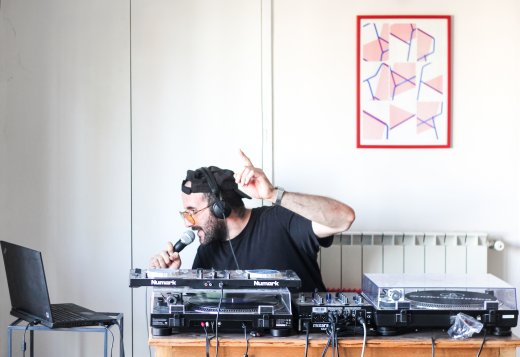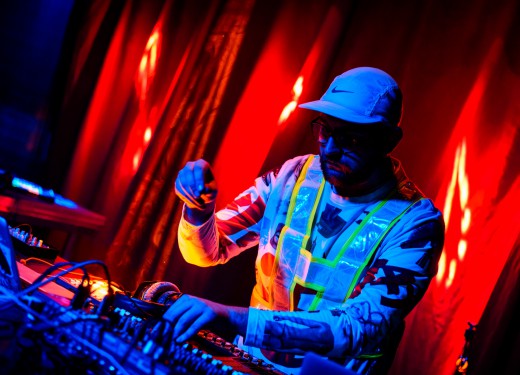
If you say “reggae”, for sure 90 percent of your audience will think of Bob Marley. And this is normal. We wouldn’t be talking today about reggae music if legends such as Derrick Morgan, Carlton Barrett, Bunny Wailer or Peter Tosh would have continued to play the rocksteady style. It took ten years of experimenting with sounds and rhythm for artists to come from the up tempo of ska to the much slower one drop rhythm. But the drive force in these ten years was the desire to experiment and the urge to innovate. Since the 70s until now, reggae evolved from a musical genre to a solid culture, inspiring and educating, travelling all around the globe promoting its values both to the artists and to the public.
After almost 50 years of a solid reggae genre where the harmony, rhythm, percussion and sounds where well established comes a new approach. Straight from the mother island of Jamaica, a new concept is born – the reggae revival. A term coined by Protoje, Chronixx and Jah9 to help them better market their sound. "We are much more experimental than our predecessors”, Protoje says. “We’re influenced by hip-hop, rock, pop music, with a reggae base underneath it”. Indeed, their music is not that “pure” reggae sound one is used with - the che-ke with the guitar, the bang on the piano or the organ bubble. Protoje latest album, A Matter of Time, has a lot of pop, hip hop and electronic influence on it. Talking about this “new sound”, Protoje says “we want to make this so fresh that people question what reggae music is.”
It started just by being around Kingston and looking for people that I have things in common with. I felt very lonely doing music and not having enough people to share it with, so I and we (my team) just kind of started to see who else we can hang out and have a good vibe with. And then I met Jah9 who introduced me to Kabaka Pyramid and then through him I met Chronixx and Raging Fyah. All of us realized that we are going to be part of something special, so we decided to start and support each other and try to push ourselves further. It just started to expand like that. I mean, if we’re at the same place we do shows together, like Chronixx did in New York, then in Jamaica, Kabaka did a show in Denver and got me on stage. We just try to support each other and feel the vibes.
In terms of popularity and mainstream music you need charismatic musicians, artists that inspire the people. Reggae music has always had that, but reggae music has also been held back because of many issues like homophobia, violent lyrics and hate speach, all that really used to stain a lot of great artist’s careers. I find that right now we managed to keep a great balance: entertain, give strong messages, make it feel cool and fresh and I think that the artists will always have a job to push the music forward, like I have to do now: come to Romania, play music with Onyx and Fatboy Slim and different other genres and show that our music can coexist with all these types of sounds while still remaining authentic.
I just think that most men that I’m around think that women are subservient. They feel that men are more powerful and women should be secondary. It’s kind of frustrating to me because I grew up in family where my mom was very instrumental in my life and my grandmother too. Most of the people I work with in my company are women: six ladies with Jamila here for example. Just the strength of women I’ve seen all my life lets me know that men and women are equal. I think it’s important for me to say these things. I have a daughter as well and I don’t want her to grow up
thinking that she is secondary to men. I think this is one of the main reasons the world is how it is right now: man have caused that, with their superiority complex and I need to speak about it. Women are a blessing to this Earth and we as men should treat them more precious, take more care of them and be stronger for them and, of course, more supportive.
I think there are lots of brilliant women doing awesome music in Jamaica and they just don’t get the love. Maybe they’re not dressing with half their body exposed or something like that, but that’s fine too, if a woman wants to dress whatever she wants they can do whatever: like Spice or Shenseea, I am fully supportive of that Lady Saw attitude. All I am saying is that most of the time in Jamaica they don’t give attention to women who like Jah9 make a statement with their music. Jah9 is one of the greatest artists we have in our generation and I just think that she should be highlighted. And yes, I’ve collaborated with her twice, she worked with Chronixx too and with Mad Professor for her latest dub album. Yeah, Jah9 ah greatness!
When my mother made music, the industry was a tricky thing and you didn’t really know what you can get. So, she really got the worse and her experience and constant support taught me a lot, her belief in me is immense. Seeing the things that she went through, not owning her masters, getting robbed for lots of money and stuff like that made me more aware of the gender problems in the music industry. She motivates me a lot, everything I achieve in music, her name will be attached to it. They’ll never mention my name without hers, so I like to do my best so that she gets the recognition she deserves even if it’s indirect from me.

Translating it for the live show is easy, the difficult thing was that I was touring all of the past two years and Winta was touring too. So we didn’t have as much time in the studio as with the first album, Ancient Future. With this one we had to kind of save up all of the ideas until like October 2017 and then really spend those two months and trying to get it done by January-February next year. That was challenging but once we got in the studio it all started to flow. The song A Matter of Time with the psychedelic sounds is one of my favorite bits on the album.
Don Corleon is a legend in Jamaica, he’s a legendary producer! Sizzla, Bounty Killer, Vybz Kartel, Sean Paul, anything you can think about he has done. It took a long time for us to work together. But that was a very big decision and was instrumental in my career. He kind of showed me how to be an artist, how to formulate my songs, to finish a tune well. I owe a lot to him in terms of helping to craft myself into a finished artist. It took a lot for us to work together and then we did two records and that was a good time.
Two completely different styles. Haven’t been in studio with Don for about six years now, so sometimes I don’t even remember the sessions, but he’s very stringent about how he wants the process to take place and stuff to be done. Do it like this, do it like that. It’s a different perception too, as I was a very young artist at the time.
With Winta it’s like there’s both of us in a good point of our careers and so we have a relationship more equally back and forth. With Don it was more his way but probably at that time in my career I needed that type of direction.

I don’t see it as a challenge, it’s just music. When I hear something inspiring and it makes me feel in some way special then I come up with ideas. If I don’t feel someway in my chest then I won’t do it. It’s not like, I have this Major Lazer horn and this is what we are going to do that for the public. He literally sent me something he wanted for his Christmas album and I send him a voice-note, then he sent me an instrumental which spoke to me and I recorded some vocals in my room and it was done. From Tribal Seeds I got the beat, I remember telling Jamila (his team member and tour manager) how I love it and want to write something to it.
I get beats from people all the time and it can even sound good but I don’t get that inspiration from it. If I don’t get that, I don’t force it. If I would be trying to hard then I would just leave it, likewise if it comes naturally it’s happening.
With Rudimental I wished they would have performed tonight at the festival because I would probably have sung our collaboration live onstage. I love that song (Toast to our Differences), I wrote it on spot, in the studio like in five minutes! I write in different ways, any way I can think of. I can get a beat, or sketch a melody on my own, or just go along with a thought. Every song is different!
In my opinion reggae doesn’t really get mainstream play because at the end of the day we are talking about something. Most of popular music now, globally right now, it doesn’t really have a message, it doesn’t talk about anything more than party, drinks, drugs, shake your ass, do this, do that, and it’s fine, it’s whatever.
But dread come out with music that have a conscious message and delivery. Who Knows got to a level, still not mainstream, it’s known globally, not for everybody, but what matters is that at the end of the day you have direct access to people with streaming, the internet and you just try to get the music to as many people as possible. If it goes mainstream, it goes but I don’t have a lot of faith in mainstream music industry in pushing our messages.
Yet again, I think that reggae has the potential to be mainstream, I am here playing this music in Romania. That is Eastern Europe, and if you told me five years ago that I would be playing in Bucharest it would have sounded mad to me. I only have seen and heard about that in Mission Impossible movies, hear the stories about Transylvania and vampires and all of that. To be so far away from home just shows me how my music, our music – reggae is happening, is having an impact. I am here playing this festival and maybe next year it’s Chronixx, next year the two of us and then 3 more artists.
Yes, I am going to release two dub albums: a dub version for Ancient Future and one for A Matter of Time. I am also preparing something new, I don’t want to give it away, but it will be a collaboration with a different act than me and my band. It will a more dub act, like what Jah9 did with Mad Professor. Me, Winta and Greg, my engineer, have been talking about doing something special. The thing is that when reggae came into my life, it was really through dub music. Hopefully I can do that, expand that and have some more fun.






